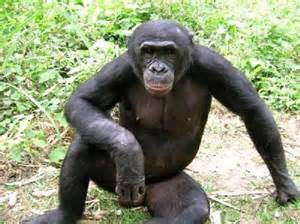“You haven’t changed a bit!” I would have assured the woman I saw passing me on the street, had I stopped to talk. The daughter of one of our former presidents, she went to a girls’ school in New York at the same time I did, and I recognized her instantly, as always. Unfortunately, I might have added, had I not had control of myself; realizing I felt nothing but pity for the frozen-in-time human doll she’d become.
For indeed, she had the same hairstyle, figure, clothing and even expression on her face she’d favored the world with at the age of 14. The 60 years separating that era and this chance meeting haven’t brought any alterations to her that one could possible detect. And yet, the office her father filled once in the white house on Pennsylvania Avenue has been inhabited by many different men since he left the lawn in a helicopter, the government changing repeatedly, and morphing into something many of us hardly recognize as the work of our founding fathers anymore. It’s trying to adapt to the worldwide movements in ideologies and lifestyles of our human societies around the globe, as are we.
Yet clearly, this former acquaintance of mine has not. What will become of a creature like her, stuck in a time and place no longer extant? Smiling fatuously at the air around her as she always did, she doesn’t show any of the strain or distress many of us openly admit to after our recent election. Is that a better way to deal with what we fear? Has she figured out that turning herself into a fossilized piece of agate will insure her preservation? If we were to adopt her stance, the refusal to change will surely lead to our extinction, homo sapiens the only surviving species of the genus Homo vaguely remembered with mild nostalgia. Adaptation is the key to our survival.
The first time I learned about adaptive behavior in science, along with Charles Darwin and natural selection, I was in a class at the Natural History Museum in New York. At that young age, I couldn’t understand how species could adapt to the changing environment without actually doing anything intentional. It all happened ‘naturally’, I was told, but there were layers affecting the time span and results. Genetic evolution seemed almost haphazard and magical to me, especially as the consequences take many lifetimes to be visible. But developmental ones, such as the growth of body mass and longevity in those exposed to a diet rich in nutrients their parents lacked, happen generationally. Even faster adjustments show in an individual lifetime with new drugs, medical advances and personal habit modifications, like the cessation of smoking in our twenty-first century society. Cultural and technological changes obviously manipulate and possibly threaten the environment around us even faster, helping us live in ways we couldn’t without them; clothes, electricity and communications being some of the most obvious.
But what happens when we suddenly put on the breaks and refuse to grow? Is living in the woods without electricity or running water a viable alternative? Should we decide which era in our human history we prefer and simply revert to it or stop our movement from one to another in protest to things we’re uncomfortable with? We certainly can, but we’ll end up like the wooly mammoth if we do. Mr. Darwin’s theory of evolution depends on the ability or lack thereof to adapt to the environment. I wonder, as I watch our president elect plant himself firm as a wall against everything he doesn’t like, totally contrary to the Asian theory of bending instead of snapping in rigid resistance, if we need to practice adaptability at home, personally, before we’ll acquire the skill to adjust in a broader context. If the winds of change bring us a new life due to circumstances beyond our control, isn’t it advisable to acclimatize to the new existence as fully and quickly as we possibly can? Won’t that insulate us better from the harsher demands of our global community’s physical and spiritual challenges? Isn’t this what Moss Hart was suggesting when he said we can’t escape from life, we have to escape into it?
Our future survival depends on our current adaptation—to everything from losing a job or a spouse to the needs of others we don’t have sympathy for. Who we are today should look nothing like who we were 60 years ago. If it does, we’re wasting the true value of life.


I think the same as you are but I call it Coping Mechanism.
Thank you, Sidney. Since the election, I have spoken to many people who feel “depressed.” Darwin, our authority on adaption, wrote that depression “lessens the power of action, yet it is well adapted to make a creature guard itself against any great or sudden evil.” Our world is now disordered — haywire. I can only hope our pain and sadness will inspire us to find new ways to correct the world, while, at the same time, guard our country against evil.
Oops! “Adaptation” not adaption.